What you Want, Find Here ↓
ToggleAvocado is a popular and versatile fruit with unique nutritional benefits so here we discuss about nutrition in avocado. This nutritious superfood has become increasingly popular in recent years due to its high levels of healthy fats, vitamins, minerals and fiber. Avocados are an ideal choice for people looking to make healthier food choices because they provide essential nutrients while still being low in calories.
A single serving of avocado contains nearly 20 vitamins, nutrition in avocado, minerals and phytonutrients – including potassium, folate, magnesium and vitamin E – that can help support a well-rounded diet. In particular, avocados are rich in monounsaturated fatty acids like oleic acid which have been linked to lower cholesterol levels and improved heart health. Additionally, the high level of dietary fiber found in avocados helps promote regular digestion by preventing constipation and lowering the risk for certain chronic diseases such as diabetes or kidney stones. The consumption of avocados has increased significantly in recent years and the avocado industry is now worth more than $1 billion. “We are delighted that the avocado is being celebrated in this way. The catchy name and vibrant logo will help to raise awareness of the health benefits and versatility of avocados,” says Avocado Australia chairman, Mr Roy Wilson. “We are confident that this will be a successful campaign and we look forward to working with all involved on the development of the Avocado Australia brand.

Avocado is a highly nutritious and delicious fruit that’s gaining popularity among health-conscious eaters. The creamy, buttery texture and mild flavor of this superfood make it a great addition to salads, sandwiches, smoothies, salsas and other dishes. Not only is avocado packed with essential vitamins and minerals like potassium and vitamin E, but it also provides beneficial monounsaturated fatty acids that help protect against heart disease.
With an impressive array of nutrients packed into one small fruit, Many nutrition in avocado so avocado offers many health benefits including improved heart health, weight management support and cancer prevention benefits. Avocado has a high fiber content which helps regulate digestion while providing satiety so you stay full longer.
Summary
In conclusion, avocado is a popular and nutritious fruit that can be used in a variety of dishes. Not only does it have a creamy and delicious flavor, but it is also high in healthy fats, minerals, and vitamins. Incorporating avocado into your diet is an easy way to get more nutrition and increase the health benefits you receive from your meals. Avocado can be used as a topping or spread on toast, mixed into salads or smoothies, or eaten plain with some salt and pepper.
Powerful Nutritional Benefits of Avocado
Avocado is a superfood powerhouse packed with essential vitamins and minerals and many avocado nutrition facts. Its nutritional benefits have been praised for centuries, and modern science has only continued to bolster its reputation as an incredibly healthy food. Rich in healthy fats, fiber, and antioxidants, avocado provides a wide range of nutrients that can contribute to better overall health.
The monounsaturated fats found in avocado are beneficial for heart health and may help reduce cholesterol levels. Avocado also contains high amounts of dietary fiber, which helps keep the digestive system functioning properly. Furthermore, it is packed with essential avocado nutrition facts and vitamins like vitamin K that promote bone health; vitamin C that boosts immunity; and vitamin B6 which can help regulate moods.
So Avocados are a nutritious and delicious fruit that can be added to many different meals. Not only do they taste great, but avocado nutrition facts offer numerous health benefits as well. Avocado nutrition facts reveal the various vitamins and minerals contained in this versatile food.
The creamy texture of avocados make them a popular addition to salads or sandwiches as well as a topping for tacos or nachos.
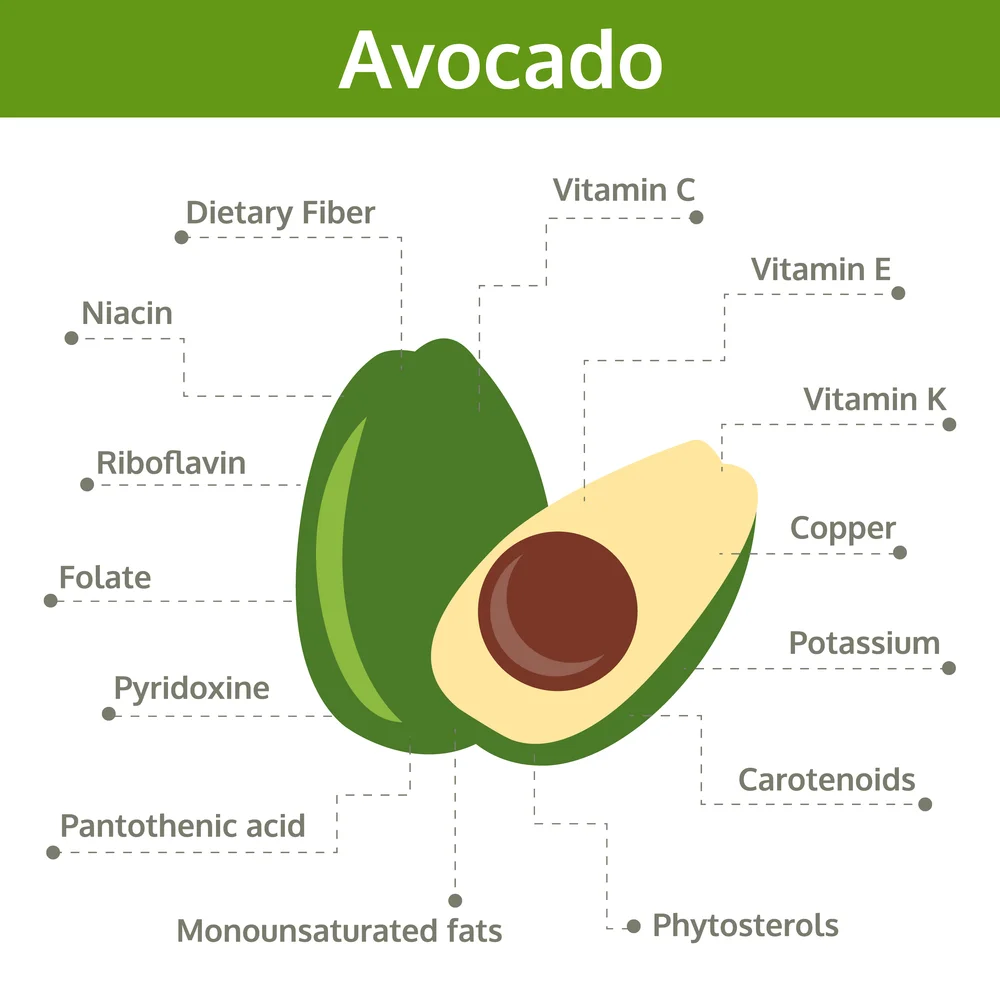
What is nutritional valsue of Avocado?
The nutritional value of avocado is quite remarkable and has been widely studied in the scientific community. Avocado is an essential source of dietary fat, containing both monounsaturated and polyunsaturated fatty acids which have demonstrated health benefits such as improved cardiovascular function, enhanced absorption of fat-soluble carotenoids, inhibition of inflammatory pathways, and increased satiety.
Avocado nutrition facts 100g?
Avocado nutrition facts 100g denote the macronutrient and micronutrient content of a single serving of this fruit. Specifically, avocados are rich in monounsaturated fat, which has been linked to improved cardiovascular health when consumed in moderation. Additionally, avocados are a source of dietary fiber, providing close to 10 grams per 100 g serving. Furthermore, avocados contain significant amounts of vitamins K and E as well as potassium and magnesium.
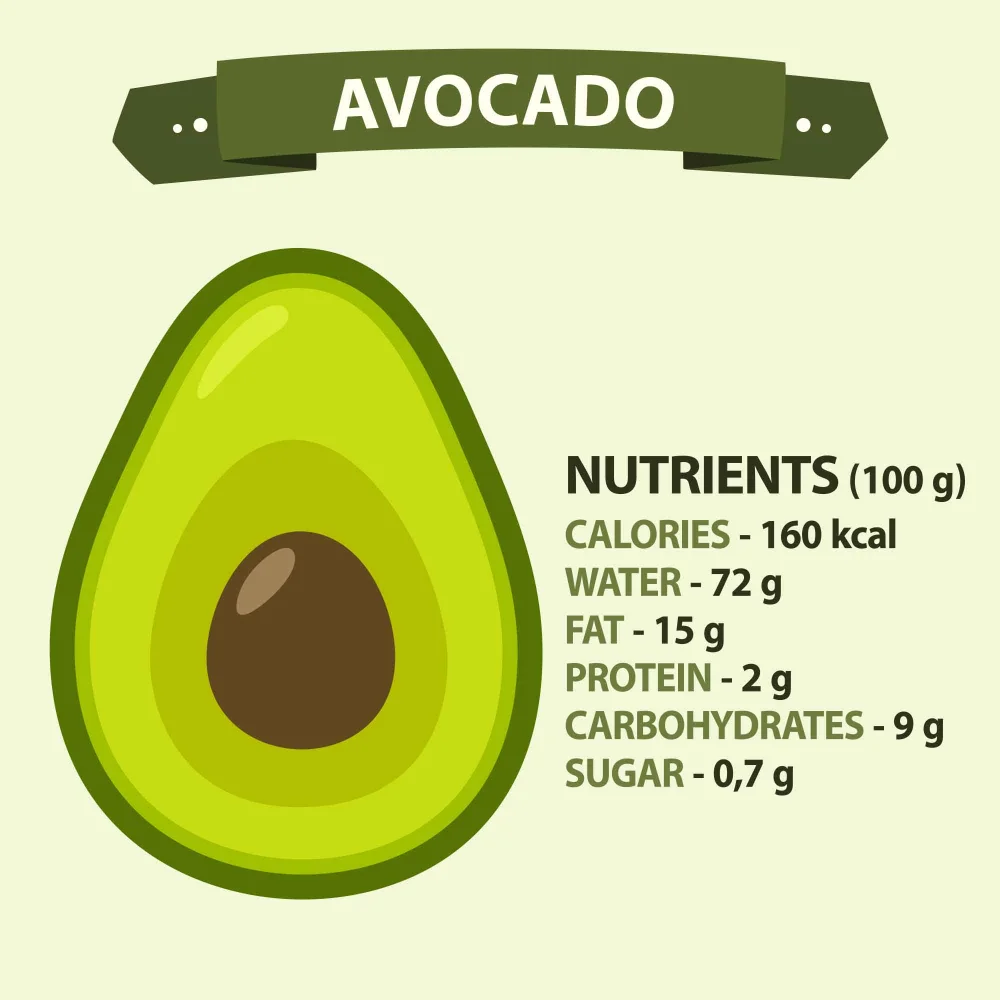
Summary
In conclusion, avocados offer a variety of nutritional benefits. They are full of vitamins and minerals that support a healthy lifestyle, and studies show they can help reduce cholesterol levels. Furthermore, they are low in sugar while providing healthy unsaturated fats that help keep us feeling satiated. Avocados can also be used as an alternative to processed ingredients like mayonnaise and butter in many recipes. Everyone can benefit from incorporating this nutrient-rich fruit into their diet.
How many calories are in Avocado?
The answer depends on the size of the avocado. Generally speaking, a single medium-sized avocado (about 200 grams) contains around 250 calories. However, if you buy a particularly large or small fruit, this number can vary from as low as 70 to as high as 350 calories per fruit. In addition to Whole avocado calories, it’s also contain healthy fats and about 10 grams of dietary fiber which helps keep you feeling full for longer periods of time. They are also an excellent source of important vitamins such as Vitamin C and E as well as potassium and magnesium – all essential nutrients for optimal health!
How much calories in one Avocado?
Avocados are among the most nutritious fruits on the planet. Packed with essential vitamins, minerals and healthy fats, they can be a great addition to any diet but 1 avocado calories has how much?
One average sized one avocado (200 grams) contains approximately 322 calories. This includes 17g of carbs, 4g of protein and 29g of fat. Most of these calories come from the fruit’s fatty acids; primarily oleic acid, which has numerous health benefits like reducing inflammation and improving heart health. Additionally, avocados contain 9 essential amino acids that our bodies can’t produce on their own – making them an ideal source for vegetarians and vegans looking to get adequate protein intake in their diets.
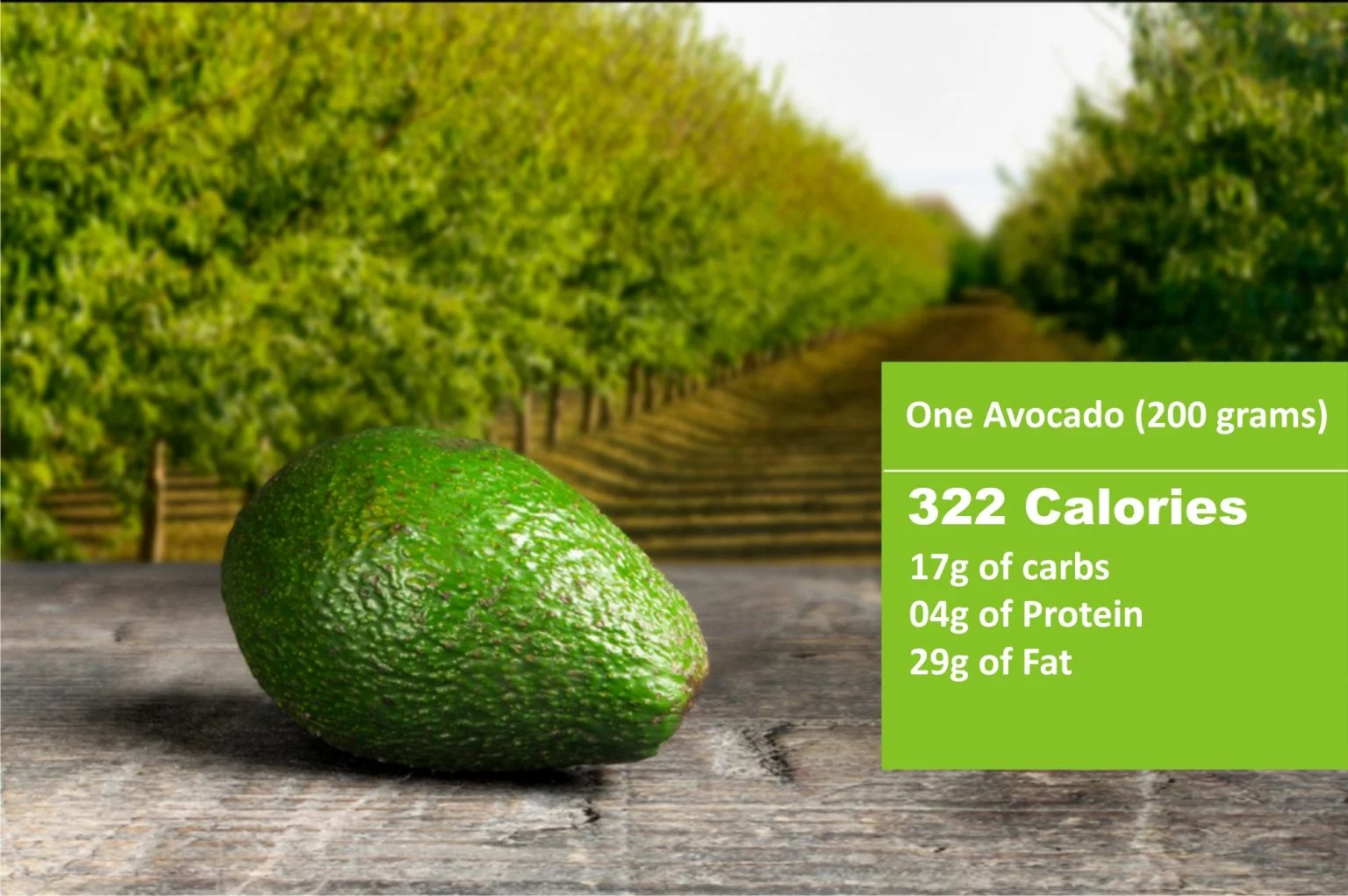
Half Avocado Calories?
Half an avocado contains approximately 112.5 calories. Its making it a nutritious, yet low-calorie snack choice. As one of the most versatile fruits around, avocados can be used in everything from salads to smoothies and even desserts. Not only are they packed with essential vitamins and minerals, but the healthy fats found in avocados also have many health benefits.
How much calories in large Avocado?
The content of large avocados calories is an important consideration for dietitians and nutritionists, as it can affect the overall nutritional value of a given meal. The amount of calories in a large avocado is highly contingent upon the size and variety of the fruit. In general, it can be estimated that one large avocado contains approximately 400 calories, although this value may vary depending on factors such as species, maturity, and ripeness. Additionally, an individual’s dietary requirements must be taken into account when assessing calorie content in order to ensure proper nourishment.
How much calories in medium Avocado?
The caloric content of a medium avocado can be determined through the application of nutritional science. Specifically, this involves analyzing the macronutrients and energy associated with the consumption of a medium avocado. Specifically, the medium avocado contains approximately 160 calories per 100 grams which is equivalent to a single medium sized avocado weighing approximately 200 grams providing an estimated 320 calories.
Avocado calories 100g?
As per previous says that Avocado calories 160 calories per 100gram so it can be described as the caloric content of avocados. This phenomenon is a result of the macronutrient composition of avocados, which consists primarily of dietary fat and carbohydrates, both capable of providing energy in the form of metabolic substrates for cellular respiration and other metabolic activities.
How much calories in small Avocado?
Avocados are an especially nutritionally dense food, its also small one containing approximately 160 calories as medium avocado. This is due to the high fat content of the fruit, which contains monounsaturated fats which have been linked to reduced risk of cardiovascular disease when consumed in moderation. In addition, small avocados are rich in dietary fiber, which helps regulate digestion and may help lower cholesterol levels.
How many calories in Avocado Toast?
Avocado toast is a dietary staple for many individuals due to its nutrient-rich composition. Specifically, avocado toast contains calories that are essential for the body’s energy needs. These calories are derived from macronutrients such as carbohydrates, fats, and proteins, which are stored in the body as energy reserves. The total caloric content of avocado toast can vary depending on the size and amount of ingredients added to the dish; however, a typical serving avocado toast can contain between 150-200 calories.
Summary:
In conclusion, avocados are a nutritious and delicious addition to any diet. Not only are they packed with nutrition, but they are also low in calories and high in healthy fats. Avocados can help you reach your daily nutritional requirements while still keeping your calorie intake low enough to meet your goals. As a result, avocados can be a great option for those looking to maintain their weight or lose weight in a healthy way.
How Many Protein in Avocado?
The 4 grams of protein in a single serving of avocado may seem relatively small compared to other animal-based proteins like chicken, which contains 23 grams per serving. However, the kind and quality of the proteins found in these foods are quite different. Avocado’s plant-based proteins contain essential fatty acids, as well as fiber and other vitamins and minerals not found in animal-based proteins. In addition, many experts agree that consuming plant-based sources of protein can be beneficial for overall health.
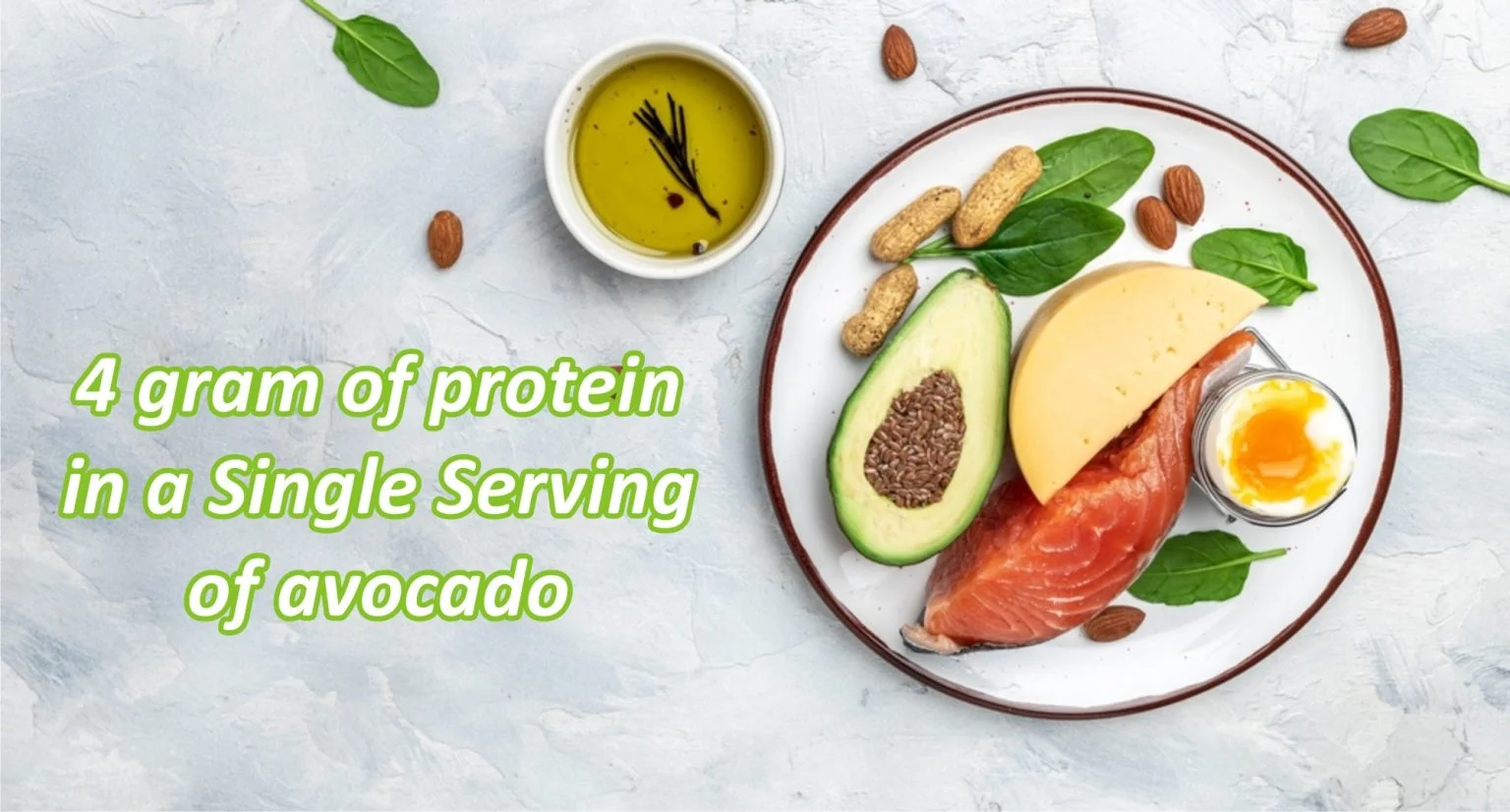
How Many Fat in Avocado?
Avocado is a fruit that has become increasingly popular in recent years. Packed with healthy fats, vitamins, and minerals, it’s no wonder why avocado has been hailed as a “superfood”! But how many fat in avocado?
The fat in avocado can vary depending on the size and variety. Generally speaking, one average-sized avocado contains around 30 grams of fat. This makes up about 77 percent of the total calorie content in an avocado – so it is quite high! However, avocados contain mostly unsaturated fat which means they are still considered to be healthy when eaten in moderation. In fact, studies have shown that consuming avocados may help reduce risk factors for heart disease and other chronic conditions.
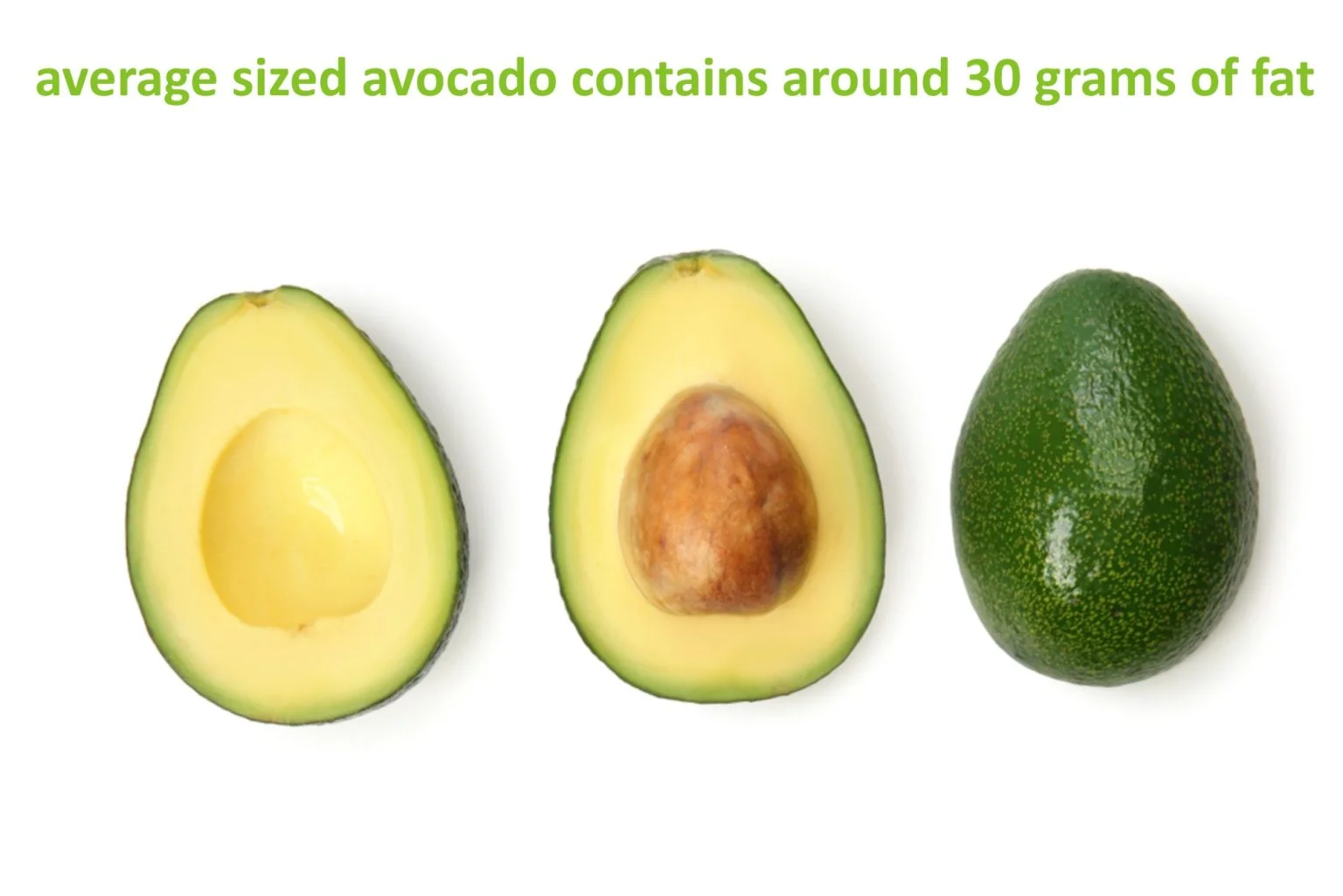
Vitamins in Avocado
Now discuss about avocado vitamins, Avocado is a nutrient-rich fruit that provides many essential vitamins and minerals for the human body. It contains high levels of Vitamin C, which helps to support a healthy immune system and Vitamin E, which is an antioxidant that helps maintain cell health. Avocados are also packed with other vitamins including folate, potassium, magnesium, niacin and riboflavin.
These vitamins help provide energy for the body as well as promote healthy skin, hair and nails. The omega-3 fatty acids in avocados can help reduce inflammation in the body while also promoting good cardiovascular health. Additionally, avocados contain Vitamins B6 and B12 which are essential for maintaining healthy red blood cells and regulating hormones in the body.
Final Words:
Avocados are a great addition to any diet and can be enjoyed in a variety of ways. Not only do they provide essential vitamins, minerals and healthy fats, but they are also low in calories and packed with proteins. Eating avocados regularly can help you reach your health goals, such as weight loss or maintaining energy levels throughout the day. Furthermore, avocados are versatile and can be used in many dishes, ranging from salads to smoothies.




